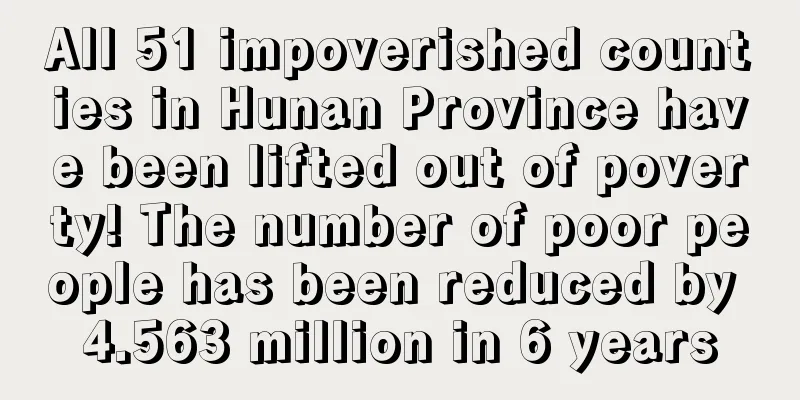From Didi to Mobike, the sharing economy has to overcome two major challenges

|
"Sharing economy" is the most popular word today. From Uber, Airbnb to Didi and Mobike, these real and fake "sharing" have almost blinded everyone. Sharing economy: new growth The origins of the “sharing economy” are as old as human beings. Before the concept of "private property" emerged, everything was shared, and there was no necessary connection between use and ownership. "Books cannot be read unless they are borrowed" refers to the sharing economy. From today's perspective, borrowing books belongs to the "free C2C model." Shang Yang (c. 395 BC - 338 BC) advocated "reinforcing agriculture and suppressing commerce". If there is no commerce, how can we "suppress commerce"? It can be seen that commerce has a history of more than 2,500 years in China. Merchants purchase property for the purpose of profit for customers to use, which is a "paid B2C model". Taking public transportation, staying in hotels, taking commercial flights, renting cars...are all sharing equipment/facilities provided by businesses with strangers. "Sharing", which has become popular in recent years, refers to the sharing of idle items, idle time or knowledge/skills between strangers using the Internet as a medium. The beneficiaries usually pay compensation but the amount is lower than receiving services from merchants. The representatives of the sharing economy in the United States are Airbnb and Uber, and the most orthodox practitioner in China is P2P car rental - car owners share their unused cars with people who need them for a fee, and the Internet provides convenience for both parties. Compared with the traditional car rental model, the P2P model is much "lighter". It saves the cost of purchase, parking, maintenance and other expenses, and provides car services at a cost far lower than that of rental companies. P2P platforms and consumers can save money, and car owners can get "extra money", which can be called a "win-win-win" situation. In addition, since there is no need to spend huge amounts of money to build and manage a large fleet, the scale of P2P platforms can expand much faster than traditional rental companies. China Auto Rental has only 100,000 cars in 10 years, while PP Car Rental, which was launched in October 2013, has expanded to 500,000 cars in 16 cities in just one year. Airbnb and Uber's valuations easily soared to $10 billion, and PP Car Rental started with an angel investment of $3 million and received $60 million in the B round. P2P car rental platforms such as Baojia, Youyou, and Aotu also received huge investments in 2014: Baojia completed a $30 million A round led by China Ping An; Youyou Car Rental completed a $10 million A+ round led by Yiche. The sharing economy, an old tree that has lived for thousands of years, has sprouted new buds with the help of the Internet. The "new sharing economy" is generally favored by domestic and foreign capital markets. “Pseudo-sharing” is fashionable and timely The core of the "new sharing economy" is to share the use rights of idle resources (such as houses, cars, bicycles, etc.) with strangers, so as to meet more needs while keeping the total social ownership unchanged. As Zhu Xiaohu, one of Didi's investors, said: "A small restaurant owner can drive his own car to pick up passengers in his spare time and earn some extra money. He has almost no additional costs. It is precisely because of the savings in vehicle and time costs that the car-sharing economy can provide lower-priced services to more consumers." As the Chinese saying goes, "Oranges grown in the north of the Huai River become sour." The new sharing economy has gone seriously awry in China. Several ride-hailing platforms, represented by Didi, are flooded with a large number of full-time drivers. It is common to see people purchasing vehicles just for the purpose of running ride-hailing services. "Idle vehicles" and "idle time" are all nonsense. The "old sharing economy" is not "shameful" either. Hotels, airlines, and car rental companies all have good social benefits. However, in order to catch up with the sharing economy trend, pretending to be a part-time worker is "pseudo-sharing", which is "fashionable and fashionable" in the words of Lu Xun. It’s fine if you really believe in utopia, what if it comes true? Knowing that the platform you invested in is a “black car broker” and does not match the name of sharing, you still call yourself a “sharing” and criticize others as “fake sharing”, which is quite like the “Feng Jie in the investment circle”. Since they make a living by driving illegal taxis and many of them spend 200,000+ yuan to buy new cars, drivers have high expectations for income. Compared with car rental companies and taxi companies, Didi has completely lost its cost advantage: First, there is no scale and lack of professionalism in vehicle costs. Car rental companies and taxi companies purchase customized models in large quantities and enjoy great price discounts. For example, China Auto Rental purchased Passat and Buick business class in bulk for only 120,000 and 180,000 respectively. In addition, the cost control ability in vehicle maintenance, repair and insurance is not comparable to that of private car owners. Secondly, in terms of labor costs, the income of drivers is expected to be higher than that of taxi drivers and employees of leasing companies. Buying a car is a considerable investment. Private car owners who drive private cars are considered to have "own means of production". At best, they are "half bosses". If the money is not enough, they will not do it. Didi and other companies have high costs but want to attract passengers at low prices in order to expand their scale and raise their valuations, so they have to raise the banner of subsidies. In the past "hot days", drivers from other places still accounted for the majority of people who could earn tens of thousands of yuan a month by just driving around, which shows that they are not attractive enough to Beijing and Shanghai car owners. Due to the "new policy on online car-hailing" requirements for vehicles, license plates and driver household registration, it is expected that the number of private car drivers in Beijing and Shanghai will drop sharply by 80% to 90% after the transition period expires. The question is, can Didi and others offer higher subsidies to attract Beijing and Shanghai car owners? The situation of Didi reminds us of the following scene: a gangster impulsively draws a knife, knowing the serious consequences of slashing someone but being too embarrassed to put the knife away, which is called "a knife that is too embarrassed to be sheathed". At the critical moment, the police arrive and say, "What are you doing? Put away your knives, and follow me..." The new policy provides a step to end pseudo-sharing. I hope Didi will seize the opportunity. The shared car utopia has just faded, and the shared bikes are back on the scene. In 2016, Mobike and Ofo raised $100 million and $130 million respectively. Investors on both sides include Hillhouse Capital, Sequoia Capital, Tencent, Xiaomi, and Didi. At the same time, countless brands such as Xiaoming and Youbike have appeared on the streets, but most of them are "pseudo-shared". There is nothing wrong with calling “time-sharing rental bicycles” “shared bicycles” as long as they can meet the travel needs of users. However, if they want to survive and develop without relying on capital transfusions, they need to overcome two major challenges: operating costs and division of responsibilities. The operating costs are difficult to estimate Taking shared bikes as an example, there is such an algorithm: each bike is rented 1,500 times a year (5X300), 1 yuan per time, and the annual income is 1,500 yuan. It takes 2 years for Mobike to recover its cost of 3,000 yuan, and only 60 days for ofo to recover its cost of 300 yuan. The lifespan of the two bikes is 4 years and 3 months respectively. The fundamental problem with the above algorithm is that it ignores operating costs. Let’s use reductio ad absurdum and a little common sense: If you spend 3,000 yuan to buy 10 bicycles, and use 4,500 yuan in the first quarter (of which 1,500 yuan is gross profit) to buy 15 new bicycles, and the rental income in the second quarter increases to 6,750 yuan, which is still all used to buy bicycles... By the beginning of the 16th quarter, you can actually use 1.314 million yuan to buy 4,379 new bicycles, with a quarterly revenue of 1.97 million yuan. If you stop here, you can take 1.97 million yuan home! With a small capital of 3,000 yuan, he started a small business of renting bicycles and made 656 times the profit in 4 years. The annual compound growth rate of personal assets exceeded 400%. This goes against common sense. The operating costs of bicycle time-sharing rental include but are not limited to vehicle management, vehicle maintenance, website operation and administrative expenses. The vehicle management costs alone are difficult to estimate. An article predicting that "Mobike's victory is inevitable with the support of Foxconn" said that "Mobike will have an annual production of 10 million units, which can ensure that it is ahead of its competitors in the delivery link." Just think about it, if there are 10 million bicycles delivered per year, how much manpower is needed to deliver 30,000 bicycles to every corner of the city every day? Moreover, it is not a one-time deployment that will solve the problem once and for all. The destination of the car cannot completely match the point where the rental demand occurs, so staff need to re-deploy it. Staff need to correct the random parking. Staff need to take back the cars that are intentionally or unintentionally damaged. Staff need to find and "rescue" the cars that are hidden, locked, or confiscated by the urban management. If 20% of vehicles require intervention every day, that means handling 2 million vehicles offline. How many staff and motor vehicles are needed? There is another indispensable task: to ensure the minimum safety of vehicles, all vehicles should be routinely repaired, inspected and maintained at least once a month. Haha, collect 10 million vehicles every month, check each one for any problems, repair those that need repair, and then put them back on the road... How many tens of thousands of people's workload is this? After 10 million new cars are put into production, the situation in the first one or two months may be OK. But when the 10 million new cars become old and broken, the operating costs may become a bottomless pit. #No need to care about user experience at that time# When the average order value is low, you must be careful about operating costs. According to today's labor costs, any service that costs less than a hundred yuan and requires "personal presence" is considered a low average customer price. You want to make money from time-sharing bicycle rental with a customer price of only one or two yuan? Responsibilities and charges do not match When I was studying business law, I learned a case: Tom sold a yacht to Jack. Since it was inconvenient to drive it away immediately, the yacht remained at the original dock after the transaction was completed. That night, it was damaged by a hurricane. The two parties had no prior agreement, and the case ended up in court. Whether Tom needs to pay compensation depends on his status: if he sells yachts for a living (even if it is a sideline), he has to pay compensation; otherwise, he does not have to pay compensation. Because: first, since Tom makes money by selling yachts, he has the obligation to bear the relevant risks; second, Tom should have relevant experience, responsibility and ability, and should have foreseen the bad weather and taken preventive measures. This case also helps to clarify the identification of responsibilities in the sharing economy. Take "shared bicycles" as an example: Zhang "shared" Wang's bicycle, and a car accident occurred due to brake failure. Wang should be exempted from liability. First, Wang did not rent the bicycle for profit, but just lent it to his classmates out of kindness; second, Wang was not a professional and had no ability or obligation to regularly inspect, repair, and maintain it. If Zhang was riding a Mobike and got into an accident due to brake failure, resulting in medical expenses of 5,000 yuan, he should file a claim for compensation. Mobike can purchase liability insurance, but with 10 million bicycles running across the country and 50 million orders every day, even if the accident rate is only one in a million, the insurance company will have to pay 18,000 claims each year. How much premium will Mobike have to pay for the insurance company to dare to take the case? It is reported that after the "Ningbo Zoo tragedy", the family of the person who evaded the ticket, climbed over the wall, and put himself in the tiger's mouth is seeking compensation from the zoo! In such an environment, Mobike will become the biggest victim of "scam": your bike has a fault, I fell and had a concussion... I need to go to the hospital for a comprehensive check-up... Mobike should at least send someone to accompany me to the hospital? The cost of the check-up alone will be several thousand! The average customer price is low, but life is priceless. If I spend one dollar to ride your bike, you are also responsible for my life safety... The fees charged by Mobike are not commensurate with the responsibilities they have to bear. With 50 million orders per day, if one in a million has an accident or is hit by a "fraud", Mobike will be doomed. With a small number of vehicles, a small operating area, and high-quality users, operating costs and liability risks will not be exposed for the time being. When "shared bicycles" enter dozens of cities across the country and the number of vehicles deployed reaches tens of millions, and the quality of users varies, these two mountains will be difficult to climb. The "representative of the sharing economy" mentioned above - P2P car rental, has been blocked by "two mountains". The most difficult issue to resolve is who will bear the responsibility for the vehicle being defrauded? The wealthy PP Car Rental said, "I will bear the responsibility, but you cannot say a word to the media, not even on Weibo." Other P2P car rental platforms are not so straightforward. In December 2015, Baojia Car Rental represented its peers in winning the first case in China where a car owner claimed compensation from a P2P car rental platform: the car was lost, and the car rental platform did not have to pay! Although they won the lawsuit, they lost the hearts of the people. Will there still be car owners who would hand over their cars worth hundreds of thousands of yuan to a P2P platform for a rental fee of one or two hundred yuan? Some media said that "P2P car rental is dead." As a winner of Toutiao's Qingyun Plan and Baijiahao's Bai+ Plan, the 2019 Baidu Digital Author of the Year, the Baijiahao's Most Popular Author in the Technology Field, the 2019 Sogou Technology and Culture Author, and the 2021 Baijiahao Quarterly Influential Creator, he has won many awards, including the 2013 Sohu Best Industry Media Person, the 2015 China New Media Entrepreneurship Competition Beijing Third Place, the 2015 Guangmang Experience Award, the 2015 China New Media Entrepreneurship Competition Finals Third Place, and the 2018 Baidu Dynamic Annual Powerful Celebrity. |
Recommend
If you take a sip of milk tea like this, you are also inhaling this chemical substance that will not degrade for hundreds of years | Expo Daily
If you take a sip of milk tea like this, you also...
How to optimize PPC (pay-per-click) strategy in overseas promotion?
PPC is simply the abbreviation of Pay Per Click, ...
SAIC's "Internet × New Energy" strategic upgrade extends to B-class vehicles to form full coverage
SAIC's "Internet × New Energy" strat...
6 times of submission for review, our application's review journey!
This is the third time I have woken up in the mid...
Android is discriminated against again, even the quality of browsing Moments is lower than that of iOS
For well-known reasons, the WeChat software on An...
Renewing domain name for a long time is helpful for ranking
In a patent application filed by Google in Decemb...
Bidding promotion, how many statuses are there for Baidu bidding promotion units?
Bidding promotion generally includes plans, units...
Will the wealthy and willful Double Eleven shopping gala become the new normal for e-commerce?
It seems that only seven years have passed since ...
Dangbei X3 laser projector: automatic focus, bringing the cinema home, allowing you to watch blockbusters during the day
When it comes to projectors, perhaps many people&...
2022 Chengdu Tea Drinking Resource Group Tea Drinking and Tasting Best
Appointment arrangements for the Chengdu tea drin...
My understanding of user activation and practical communication
Activation is to allow users to use the core func...
Practical operation of Douyin account in K12 education industry!
As the proportion of short videos in the content ...
How does Google never go down?
According to Google's official data, in 2015,...
China Association of Automobile Manufacturers: The top ten companies (groups) in automobile sales from January to August 2022 sold a total of 14.539 million vehicles
According to statistics and analysis by the China...









